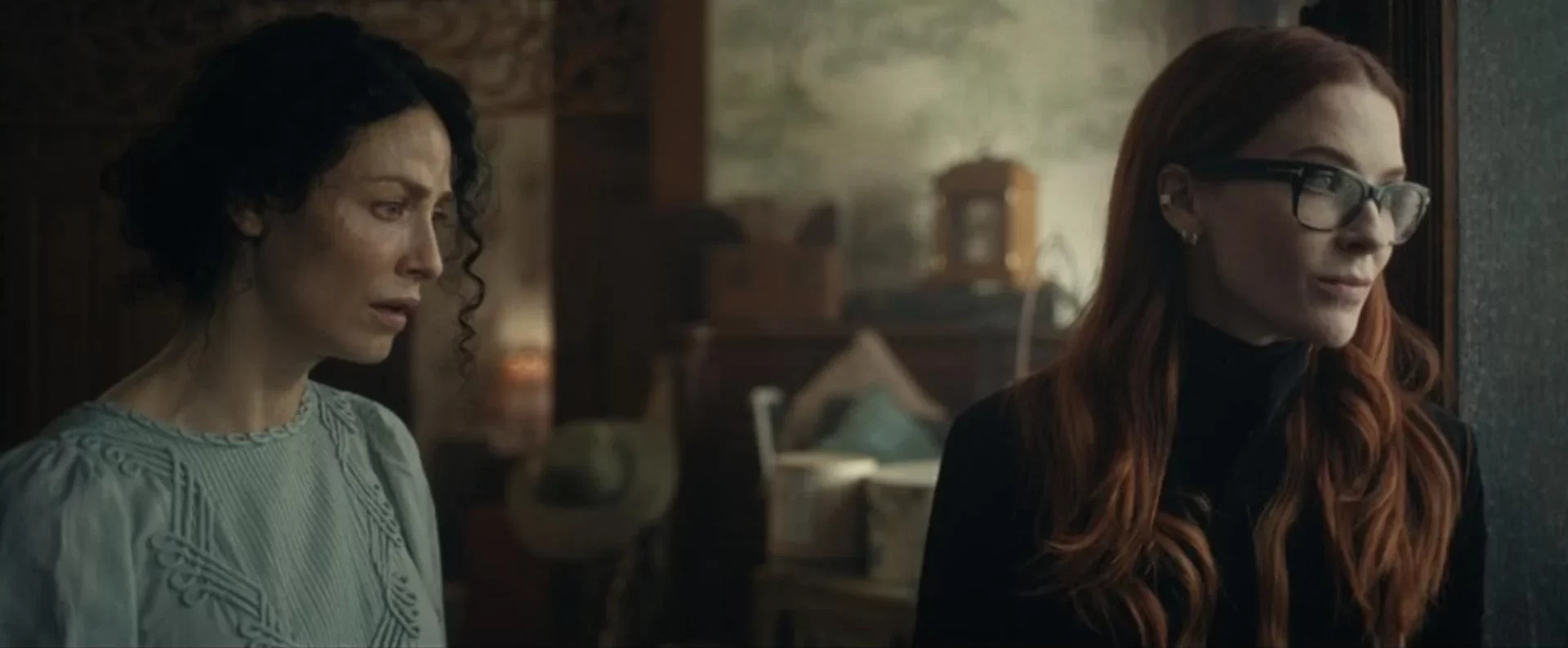Chatanooga Film Festival Coverage
Canvas review.
A high stakes sibling rivalry sets a small town on fire.
Festival reviews will not contain spoilers.

Canvas
Directed by Melora Donaghue and Kimberly Stuckwisch
Written by Melora Donaghue Kimberly Stuckwisch
Starring Bridget Regan, Alain Uy, Joanne Kelly, Samuel Roukin, Kruz Valero, Deja Dee, Martin Harris and Al Mitchell
Canvas Review
Canvas is a slow burn psychological drama full of strong performances. The central dynamic carries the picture until the narrative ramps up the twists and turns. Childhood trauma, an inferiority complex, and a lot of pain(t).
Marissa (Bridget Regan) returns to her hometown to prevent her sister Eve (Joanne Kelly) from donating valuable paintings to a local art gallery. With no right to prevent the action…Marissa turns to psychological warfare in hopes of having her sister declared unfit to control their late father’s estate.
Eve is a shut-in…living alone in their family estate. Marissa has moved to a big city and had found some success as a painter. She’s falling into some tough times when she learns that her sister plans to give away three paintings valued at over 75 million dollars. Marissa’s motivations aren’t simply financial. Flashbacks to childhood reveal a father who favored the more talented Eve. She inherited everything after he died.
The only person that Eve has stayed in any contact with is old friend Cormack (Alain Uy). Even that correspondence is done through notes and drawings. He is gravely concerned when Marissa rolls back into town. While Marissa claims she only cares about her sister’s well-being…Cormack has seen the real Marissa before. This trip isn’t the first time she’s gone out of her way to ruin Eve’s life.
Marissa’s desperation makes her an interesting antagonistic character. But it’s when Eve tries to fight her that Canvas really starts to hum. Let’s just say Marissa’s efforts only increase when she finds Eve standing over one of the paintings after lighting it on fire. A 25 million dollar push back.
One of the coolest things that Canvas does is in how it handles its flashbacks. Characters will walk through a room, and we see younger versions of their characters acting out the scene. Not only does this method make the past feel more urgent, but it also gives the impression that they are surrounded by these memories. Like they are literally walking into the ghosts of the past.
These sections generally center around their father. He was an art essayist and collector. And a terrible father. He was hard on both of his children. Demanding about their art and cruel to Marissa about her level of talent. In some ways his investment in that trio of paintings is the only good thing he left them with. Even then…he chose to only give it to Eve.
That’s part of what makes Canvas such an interesting story. Marissa does some horrible things to raise doubt about Eve’s mental health. While not agreeing…you can understand why she does them. Especially as she watches Eve destroy that painting. The chemistry between Regan and Kelly allows the simmering build to (pardon the pun) catch fire. Canvas expertly mines trauma and sibling rivalry for dramatic dynamite.
While the story is heading towards a worthwhile conclusion, it takes a big swing in the third act that doesn’t fully connect. Narratively…it makes sense and pushes several things forward to eared character endings. Unfortunately, it also gives the movie an unbelievable act that it is impossible to buy into. The rest of Canvas is a grounded psychological drama that finds depth in smaller moments. The big swing is a means to an end that goes too big for its own good.
That one caveat aside, Canvas is a well-paced potboiler for those who enjoy watching family drama and inner turmoil grow into full scale war. Marissa is trying to paint a damning picture of Eve to claim everything she believes should already be hers. Perhaps she would be well-served in remembering that her sister was always the better artist.
Scare Value
Canvas keeps the family drama sparking until it inevitably catches fire. Unique transitions bring all aspects of the story to life. The cast is excellent. The trauma is deep. Aside from one big swing that fails to fully connect, Canvas delivers a thoroughly entertaining, tense potboiler.



